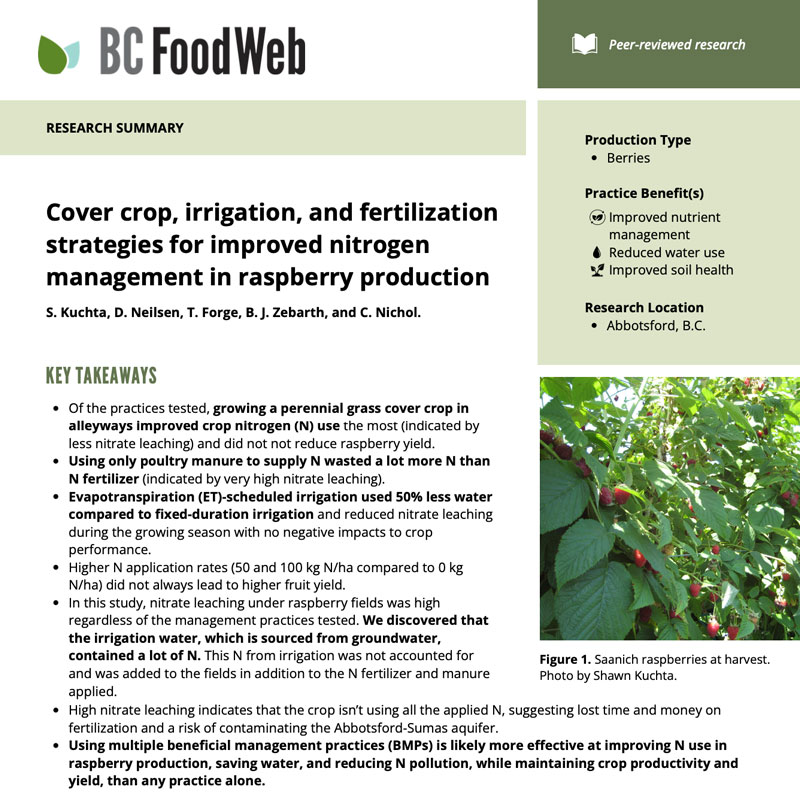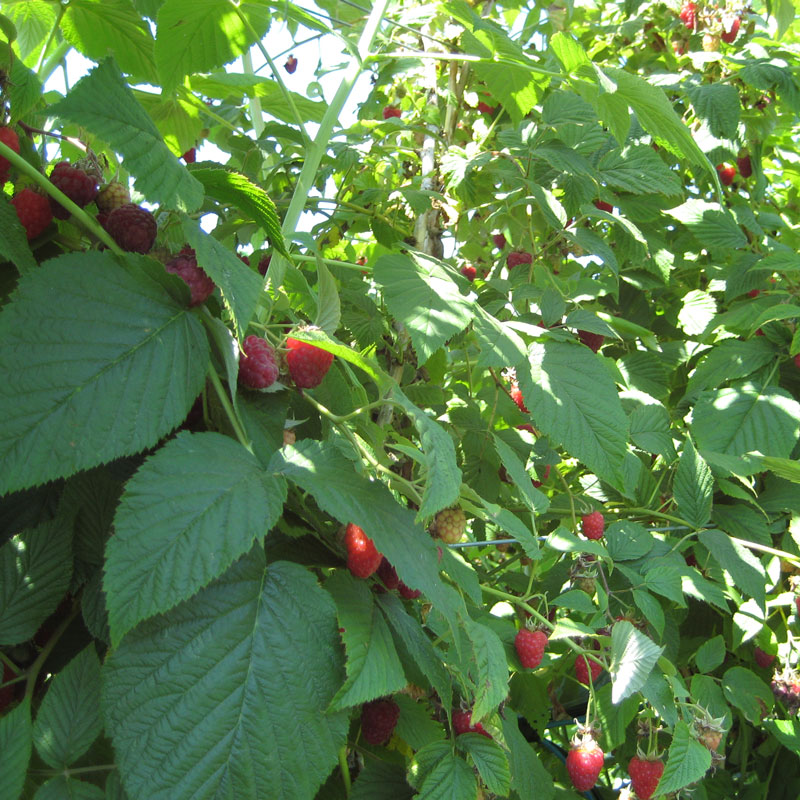Cover crop, irrigation, and fertilization strategies for improved nitrogen management in raspberry production
Introduction
We tested and compared management practices that can help reduce nitrate leaching in red raspberry production in the Lower Fraser Valley of British Columbia (B.C.).
The Lower Fraser Valley sits on top of the Abbotsford-Sumas aquifer, a groundwater resource that supplies drinking water to over 100,000 people in B.C. and Washington. High nitrate levels in the aquifer have been partly linked to the use of poultry manure in raspberry production. These high nitrate levels may be indicating that the N applied to raspberry fields above the aquifer is not completely used by the crop before it moves below the root zone. From a producer’s perspective, this may mean that more time and money is spent on N fertilization than necessary.
About this Brief
This brief was prepared by Juliana Cao from the BC Food Web team with the help of Shawn Kuchta and Tom Forge and is based on the following scientific journal articles:
- Kuchta, S., Neilsen, D., Forge, T., Zebarth, B. J., & Nichol, C. (2020). Nitrogen, irrigation, and alley management effects on nitrate leaching from raspberry. Vadose Zone, 19(1). https://doi.org/10.1002/vzj2.20054
- Kuchta, S. Neilsen, D. Zebarth, B. J., Forge, T., & Nichol. C. (2021). Nitrogen, irrigation, and alley management effects raspberry crop response and soil nitrogen and root-lesion nematode dynamics. Soil Science Society of America, 85(4), 1139-1156. https://doi.org/10.1002/saj2.20190
Key Findings
- Of the practices tested, growing a perennial grass cover crop in alleyways improved crop nitrogen (N) use the most (indicated by less nitrate leaching) and did not not reduce raspberry yield.
- Using only poultry manure to supply N wasted a lot more N than N fertilizer (indicated by very high nitrate leaching).
- Evapotranspiration (ET)-scheduled irrigation used 50% less water compared to fixed-duration irrigation and reduced nitrate leaching during the growing season with no negative impacts to crop performance.
- Higher N application rates (50 and 100 kg N/ha compared to 0 kg N/ha) did not always lead to higher fruit yield.
- In this study, nitrate leaching under raspberry fields was high regardless of the management practices tested. We discovered that the irrigation water, which is sourced from groundwater, contained a lot of N. This N from irrigation was not accounted for and was added to the fields in addition to the N fertilizer and manure applied.
- High nitrate leaching indicates that the crop isn’t using all the applied N, suggesting lost time and money on fertilization and a risk of contaminating the Abbotsford-Sumas aquifer.
- Using multiple beneficial management practices (BMPs) is likely more effective at improving N use in raspberry production, saving water, and reducing N pollution, while maintaining crop productivity and yield, than any practice alone.



